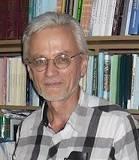The GOP Debate:Rightward Drift on Display
The contest has begun to determine who will be the Republican candidate to square off against President Obama in 2012 national elections. For months now, individuals have been announcing either their intention to run or to form what are called "exploratory committees" to determine whether or not they should run.
At present, the field though not complete, includes: three former Governors (Mitt Romney, Tim Pawlenty, Jon Huntsman) a former Senator (Rick Santorum); the former Speaker of the House of Representatives (Newt Gingrich); two current Members of Congress (Michele Bachmann and Ron Paul) and a businessman (Herman Cain).
At this point, Romney, who also ran for President in 2008, holds a lead over the current field. Given the fact, however, that he was a moderate Republican governor (who, during his term in office, passed a health care reform bill sharing some features with the legislation passed by President Obama), and is a Mormon, makes some conservatives and right-wing evangelical Christians uncomfortable with his candidacy.
The rest of the group, though large and diverse in background, is flawed, with most polls showing that the Republican faithful appear dissatisfied with the choices before them, still hoping for a "star" to come forward to claim the party's leadership role. With most of the more moderate and experienced Republicans having opted out of this election, the "star" of the moment is Rick Perry, the Governor of Texas.
Even with this incomplete field of candidates, it was interesting to tune into CNN's Republican presidential debate last week. What came through quite clearly was how far to the right the GOP has drifted, a fact that will not change even in the unlikely case that a "star" emerges to rescue the party - since Perry, for example, is merely a taller, more Texan, and charismatic version of the rest of the current field of candidates. This rightward drift came into sharp focus in responses to two questions asked during the debate.
At one point in the debate, an audience member, a long time Republican leader in New Hampshire, after making clear that he was a moderate, non-ideological, mainstream Republican, asked the candidates for assurance that they would "have a balanced approach to governing to solve our serious problems".
Either ignoring the question or choosing to deliberately slight the questioner, each of the candidates who responded focused on burnishing their ideological credentials and paying homage to the Tea Party.
This, of course, can become a problem for today's Republican Party. There is no question that the Tea Party and its fervid opposition to the President and his agenda energized Republicans, helping them regain control of Congress in 2010. Emboldened by their success, the Tea Party has continued to flex its muscles, threatening to be the "kingmakers" in the Republican primaries. Hence, the candidates are loathe to distance themselves from this movement.
But while the presidential primaries, like mid-term Congressional contests, are notoriously low turnout elections drawing support from the "fired up" party faithful, Presidential elections are a different story. In these contests, more moderate and independent voters often determine the outcome and if the New Hampshire questioner is any indication of the mood of this group, they are frightened by the Tea Party and looking for non-ideological problem-solving approaches to governance. It may very well be that in the process of ingratiating themselves with the groups they need to win the primaries, Republicans will damage their ability to compete in the November 2012 general election.
Another disturbing example of this Republican drift toward extremism came in response to a question about whether or not the candidates would be comfortable having a Muslim American serve in their Administration. The question first went to Cain who had on a previous occasion indicated that he would "not be comfortable with a Muslim". In response he elaborated on his views saying his concern with Muslims was prompted by the concern that they "are the ones trying to kill us" and weirdly inserting that he did "not believe in Sharia law". He then went on to insist that he would single out Muslims for a pledge of loyalty to the U.S. before considering them government service.
Gingrich chimed in adding that he believed that a loyalty oath for Muslims seeking to work in government was a good idea because, despite its being unpopular, "we did this in dealing with Nazis and ...with the communists...we have got to have the guts to stand up and say no".
While Bachmann, Pawlenty, and Santorum were not asked to respond to this question, they have all been on the record making equally shameful comments about Muslims and raising fears about Sharia law.
Only Romney, already on the defensive over his Mormon faith, offered a constructive comment. After paying lip-service to the anti-Sharia law mindset, saying that "we're not going to have Sharia law applied in U.S. courts" he want on to add that "we recognize that people of all faiths are welcome in this country. Our nation was founded on a principal of religious tolerance".
What was especially disturbing about this particular exchange was the silence of GOP leaders in the days that followed the debate. Their refusal to condemn these displays of bigotry and intolerance only adds to the concern that the party is courting extremist currents and, as a result, has continued on a dangerous right-ward drift.



















